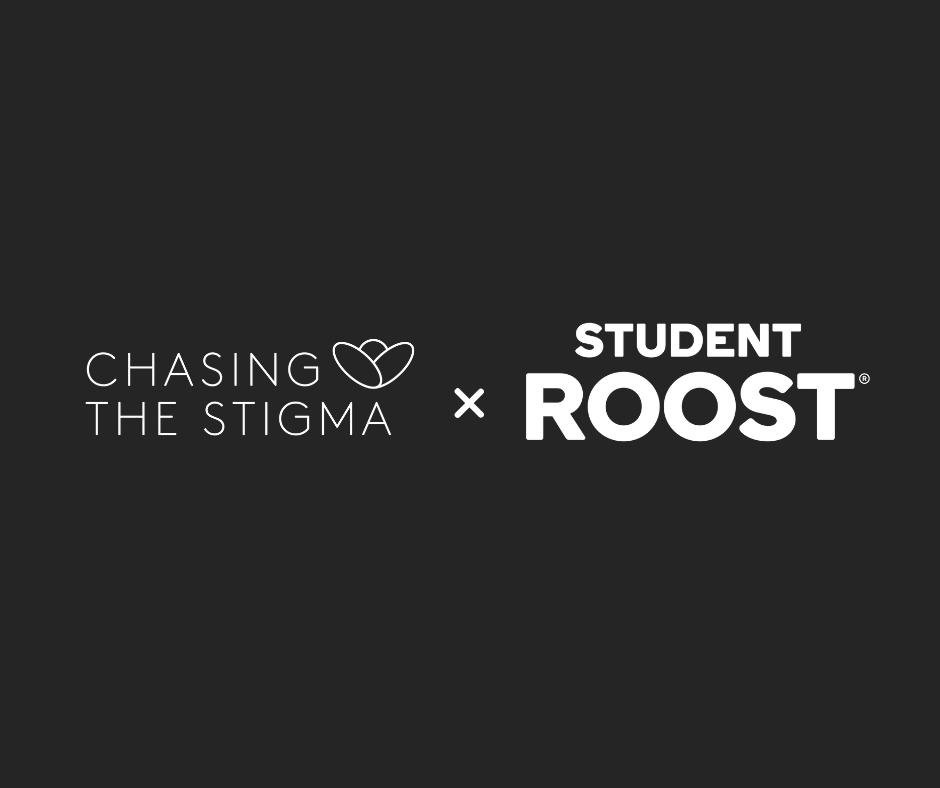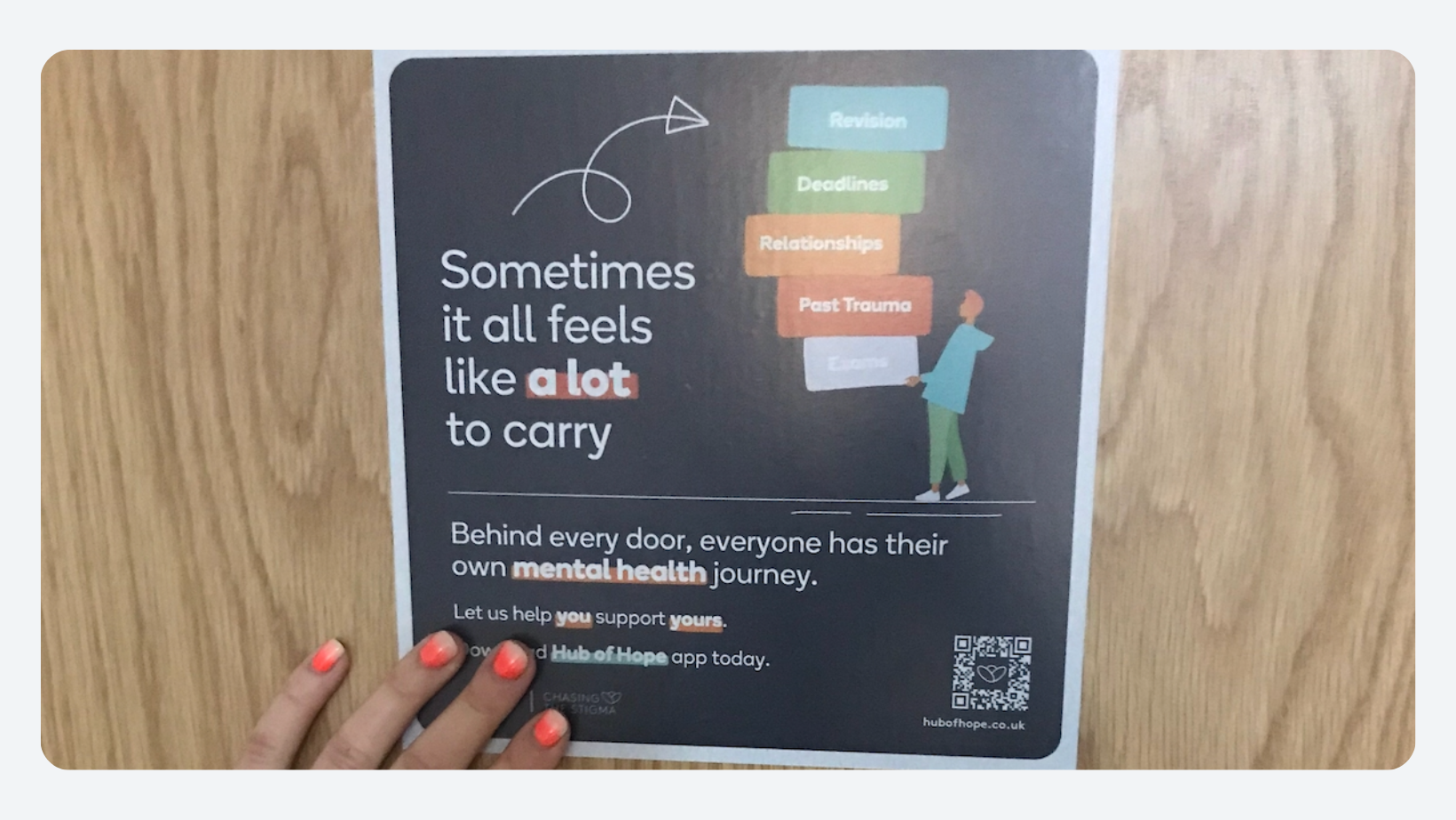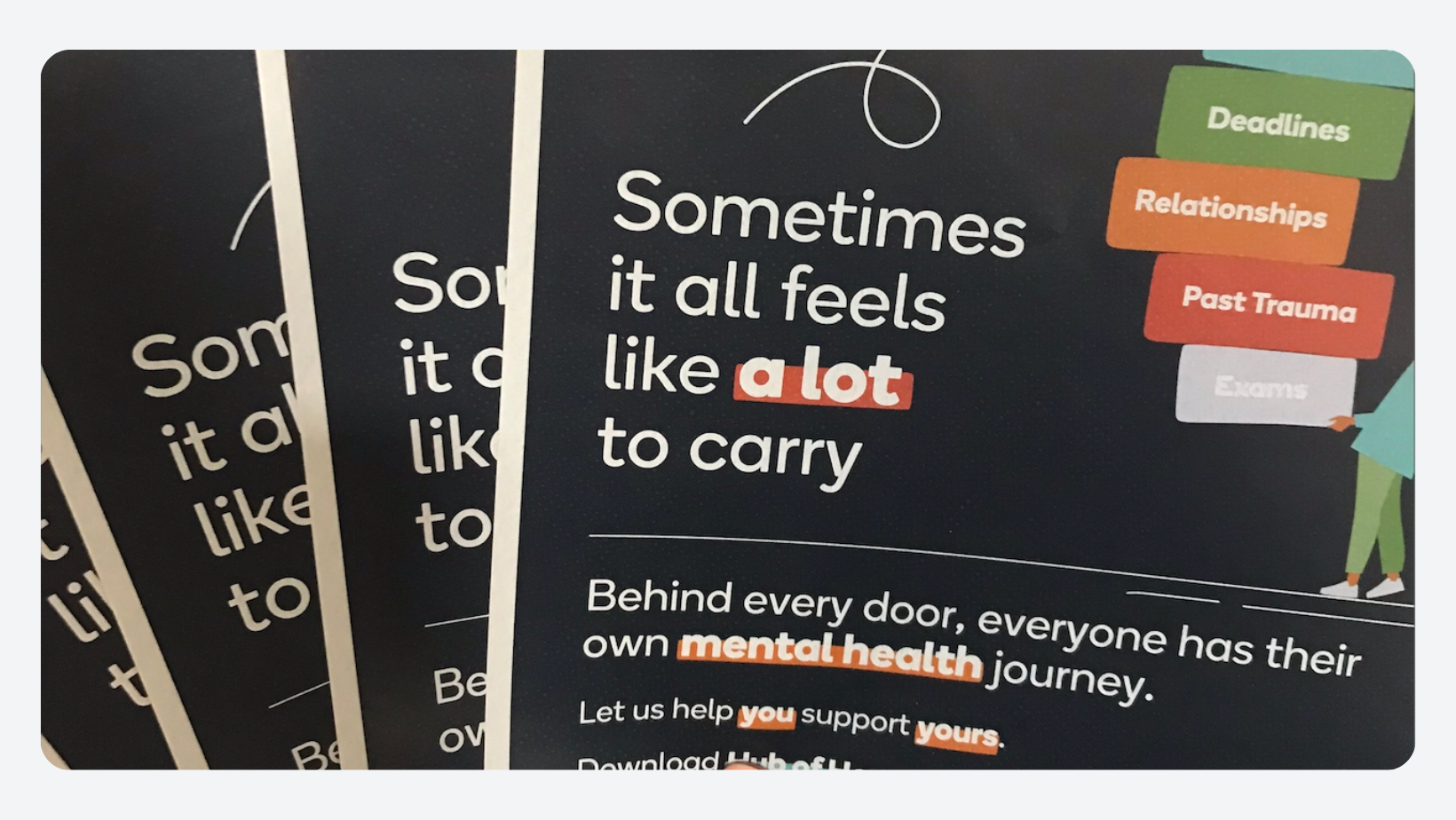
CHASING THE STIGMA’S DIGITAL MENTAL HEALTH APP IS DRIVING DATA TO SUPPORT STUDENT ROOST RESIDENTS
Behind every door, everyone has their own mental health journey.
Award-winning national mental health charity, Chasing the Stigma, and one of the UK’s largest student accommodation providers, Student Roost, have partnered up to support students’ mental health journey while in higher education.
Student Roost is the third-largest student accommodation provider, with over 50 properties across 20 cities in the UK. Having 23,000 students calling Student Roost their home during university life, they recognise that organisations like themselves have a duty of care. Right now, it’s to support students’ mental health journey.
To help deliver this mission, Student Roost has partnered with the award-winning national mental health charity, Chasing the Stigma.
Together, the partnership has launched the campaign #BehindEveryDoor and cements Chasing the Stigma’s award-winning digital app, Hub of Hope, as Student Roost’s official mental health signposting tool for all students and staff members living and working at one of over 50 properties in the UK.
Jess Gallop, Director of People & Organisational Effectiveness, says: “We are thrilled to be partnering with Chasing the Stigma and incredibly proud of our cooperative work to create and launch the #BehindEveryDoor campaign.
We want to ensure that every resident living in our properties across the UK knows that they can talk to our team members whenever they need to, and where they can find the mental health support available to them in their area.
Although mental health has been at the forefront of change and discussion recently, there is still a lot of work to do to remove the stigma which surrounds it. Our hope is that this campaign will remind each and every student that lives with us that’s it’s ok if their journey looks a little different to the resident next door, and it’s ok not to be ok”
The campaign is to raise awareness for students to enable normalising conversations around mental health between residents. It provides students and staff working within the properties with a valuable signposting tool to access over 7,000 mental health support services to find timely support for their mental wellbeing whenever and wherever they need it.
Lowri Edwards, Resident Wellbeing Manager at Student Roost, says: “While starting university and moving away from home can be exciting, for many students it creates worry, stress, and anxiety. It can be difficult for some to process how they’re feeling when they’re living away from home, either for the first time or during their second or third year of study, and don’t know where to turn to for help.
Our teams work 24/7 to ensure every resident feels safe and supported in our properties, and hold regular signposting conversations and events for those residents who ask for guidance and who may need additional advice and support. We pride ourselves on our open-door policy, but we understand that for some residents starting the conversation and asking for help with their mental health may be difficult.
Our #BehindEveryDoor campaign in partnership with Chasing the Stigma will ensure that there is signposting available in every room, for each and every resident, via the Hub of Hope platform. This partnership will assist us in providing even more support to our residents.”

Using the data provided by the digital app Hub of Hope, Student Roost will gain insight and visibility into student demographics across their properties to pinpoint what additional mental health support and guidance residents may require.
Founder & CEO of Chasing the Stigma, Jake Mills says: “The Chasing the Stigma team and I are excited about this partnership. We’ve all been there personally as a student and have our own stories of our mental health journey at uni, so to have our app, Hub of Hope, as the go-to signposting mental health support service means everything to us. It’s something we never had, and in a digital era, it is mighty and humble for us to provide this pioneering technology and data to support everyone’s mental health.”

<- Back to news